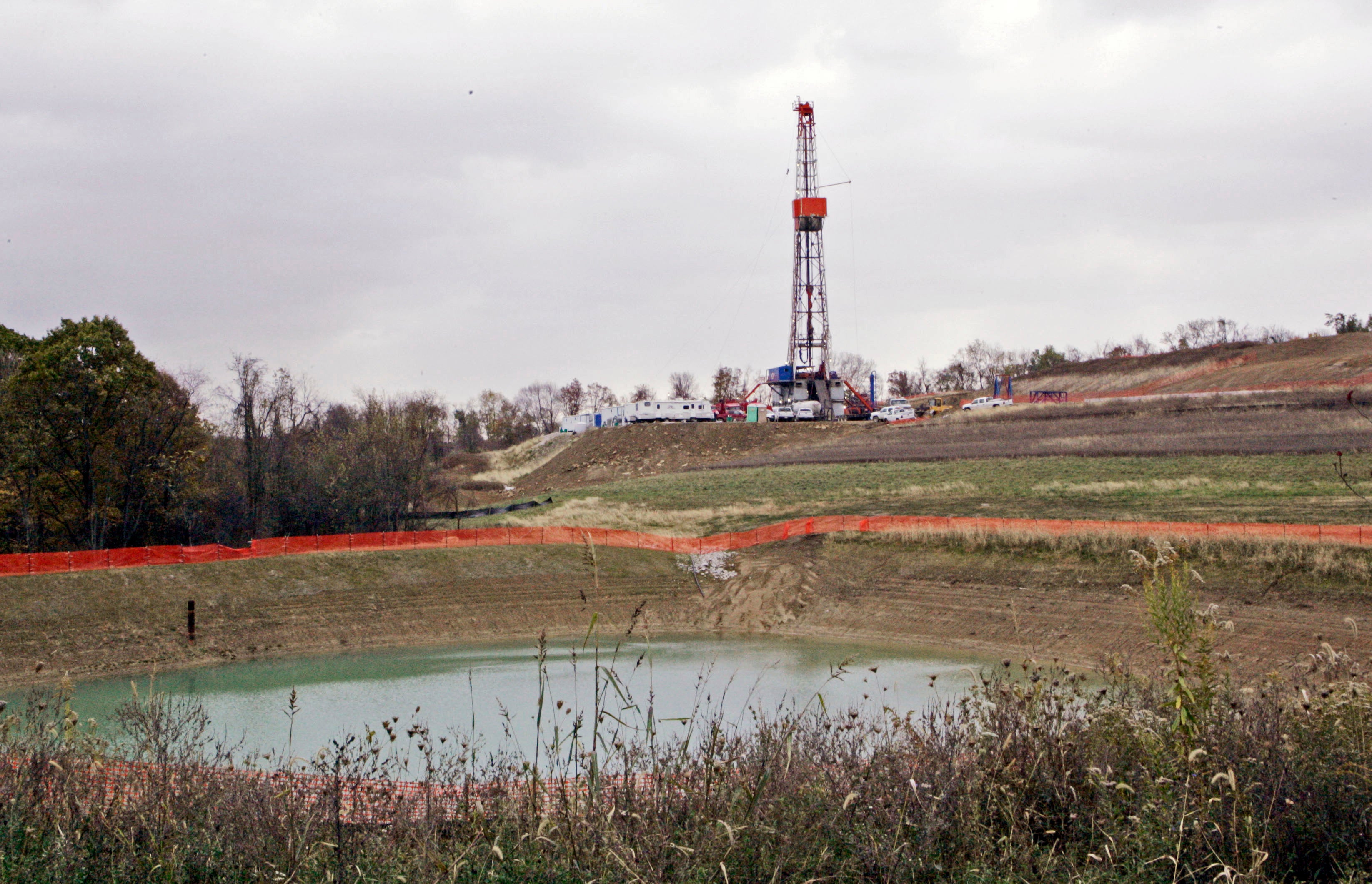Pennsylvania to partner with natural gas driller on in-depth study of air emissions, water quality
The state of Pennsylvania will work with a major natural gas producer to collect in-depth data on air emissions and water quality at well sites, enhance public disclosure of drilling chemicals and expand buffer zones

Your support helps us to tell the story
From reproductive rights to climate change to Big Tech, The Independent is on the ground when the story is developing. Whether it's investigating the financials of Elon Musk's pro-Trump PAC or producing our latest documentary, 'The A Word', which shines a light on the American women fighting for reproductive rights, we know how important it is to parse out the facts from the messaging.
At such a critical moment in US history, we need reporters on the ground. Your donation allows us to keep sending journalists to speak to both sides of the story.
The Independent is trusted by Americans across the entire political spectrum. And unlike many other quality news outlets, we choose not to lock Americans out of our reporting and analysis with paywalls. We believe quality journalism should be available to everyone, paid for by those who can afford it.
Your support makes all the difference.The state of Pennsylvania will work with a major natural gas producer to collect in-depth data on air emissions and water quality at well sites, enhance public disclosure of drilling chemicals and expand buffer zones, officials announced Thursday, touting the collaboration as the first of its kind.
CNX Resources Corp., based in Canonsburg, will partner with the state Department of Environmental Protection on environmental monitoring at two future well sites throughout all stages of the drilling and fracking process — an intensive data-collection exercise that could be used to drive future policy changes.
CNX will also report air quality data on a new website, beginning with one of its existing wells in Washington County, in the state's southwest corner, and eventually expanding to its entire Pennsylvania operation. The company has drilled more than 500 wells in the vast Marcellus Shale natural gas field.
Gov. Josh Shapiro was set to appear with Nick Deiuliis, CNX’s president and CEO, at a news conference in Washington County later Thursday. State officials say they expect the program to “definitively measure” emissions at well sites.
Deiuliis told The Associated Press he expects the data to show that natural gas extraction is safe when done right.
At the same time, Deiuliis said in a phone interview, “I'm expecting to learn things through this radical transparency and the data that are going to come from it, and I expect many of those learnings are going to result in tweaks and refinements and improvements to the way we go about manufacturing natural gas responsibly.”
Shapiro, a Democrat in his first term as governor, was the state's attorney general in 2020 when a grand jury concluded after a two-year investigation that state regulators had failed to prevent Pennsylvania’s natural gas drilling industry from sickening people and poisoning air and water. The panel issued eight recommendations, including the expansion of buffer zones, the public disclosure of drilling chemicals, and more accurate measurements of air quality.
None of the recommendations has been enacted legislatively.
Shapiro's administration spent months in talks with CNX on the data-collection program unveiled Thursday, and hopes to persuade other gas drillers to follow.
Under its agreement with the state, CNX will also disclose the chemicals to be used at a well site before the start of drilling and fracking. It will also expand setbacks from the state-required 500 feet (152 meters) to 600 feet (183 meters) at all drilling sites, and increase them to 2500 feet (762 meters) for schools, hospitals and other sensitive sites during the data-collection period.
Pennsylvania is the nation’s No. 2 gas-producing state after Texas.
Energy companies like CNX combine horizontal drilling with hydraulic fracturing, or fracking, a technique that injects vast amounts of water, along with sand and chemicals, underground to break up the gas-bearing shale. The drilling methods spurred a U.S. production boom in shale gas and oil, while raising concerns about air and water quality as well as potential health effects.
Children who lived closer to natural gas wells in heavily drilled western Pennsylvania were more likely to develop a relatively rare form of cancer, and nearby residents of all ages had an increased chance of severe asthma reactions, researchers at the University of Pittsburgh said in a pair of reports released in August. The researchers were unable to say whether the drilling caused the health problems.